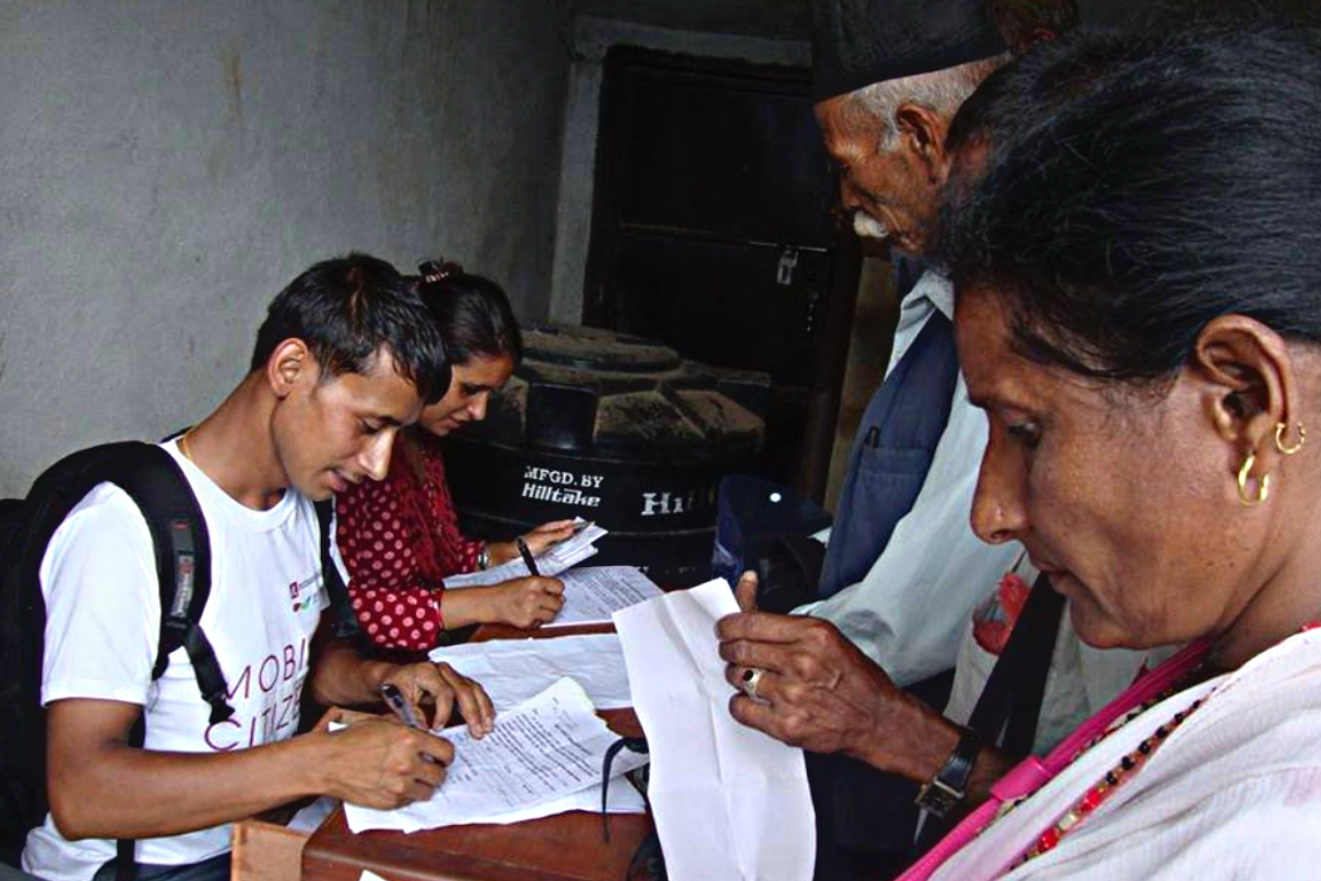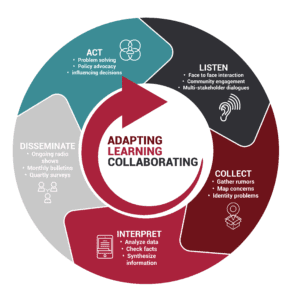NEWS
July 29, 2022

IN BRIEF
Written by Sanjeeta Pant This is the second in a series of reflective blogs that will look at how the dynamic nature of Accountability Lab’s Civic Action Teams campaign has facilitated a network of local stakeholders to respond to diverse community needs. Read the first blog here. “The Civic Action Teams model is a result of incorporating different learnings over a number of years. We did not start out with the intention of solving big problems. We did not even make any promises. We simply wanted to listen to what people had to say and to connect them [...]
SHARE
Written by Sanjeeta Pant
This is the second in a series of reflective blogs that will look at how the dynamic nature of Accountability Lab’s Civic Action Teams campaign has facilitated a network of local stakeholders to respond to diverse community needs. Read the first blog here.
“The Civic Action Teams model is a result of incorporating different learnings over a number of years. We did not start out with the intention of solving big problems. We did not even make any promises. We simply wanted to listen to what people had to say and to connect them to those who may have solutions to their problems.” This perspective, from Accountability Lab Nepal Country Director Narayan Adhikari, explains the origins of the Lab’s CivActs program.
The stepping stones for CivActs were set during a crisis – the devastating earthquake in Nepal in 2015. Our first blog shows how it followed an organic path, adapting to the context and the needs of communities at a given point in time. Unlike most development initiatives, it did not start out as a campaign. Rather it was a result of an open, transparent and inclusive set of conversations that evolved into a process. At the heart of this process are various learnings and iterations, which reinforce conventional understandings around how development processes actually work on the ground. It also shows why locally designed solutions are important for building trust. Below are four key lessons from our teams who helped to build out the CivActs feedback model over the past 10 years.
- Any development/advocacy work process follows a non-linear path, and requires constant testing and redesigning. This is because communities have varying needs- not just in terms of the different groups facing different socio-economic challenges, but because community needs are time, context and issue specific. For instance, even during the same crisis there are different needs at different points in time even for the same group of people. In the immediate aftermath of the earthquake, communities needed food, shelter, water and sanitation. As rumors around the earthquake and relief efforts spread, what communities needed was not limited to aid in terms of tangible goods, but they also needed “information aid”. Social myth, rumors, and fake news were prominent, dominating public understanding of decision making, and service delivery processes- and undermining the trust that is so critical to effective governance and service delivery over time. The need of the hour was to fight back against misinformation with reliable, verified information. After the crisis however, the need shifted towards activism and advocacy around issues like migration.
- Innovation cannot be confined to a project workplan. The process of innovation itself also needs to be fit for purpose. For the feedback loop to be effective, different tools needed to be identified and modeled relevant for the local context which could not have been predetermined. For instance, when different stakeholders were first brought together for town hall meetings, there was a lot of “naming and shaming” and marginalized people did not feel empowered to voice their concerns in large settings. A change in approach to first engage with different groups from marginalized communities- reaching out to them directly in their households and asking about their specific problems- proved to be effective. These conversations provided a safe space for communities to identify and articulate issues that even they had overlooked. With better understanding and through regular engagements, those who were hesitant at first were empowered to speak up during larger gatherings or in front of high-level authorities. This process also built trust between our Community Frontline Associates (CFAs) and communities.

3. Adaptation often requires taking a step back. “We did not see migration as a social issue. We only saw it as a way to earn money and improve our livelihoods. By talking to individual families we began to understand the different dimensions of migration, and also the need to identify local solutions,” echoed one of our CFAs. There are no short-cuts to institutionalizing change and often it takes a lot of conversations with communities on the different socio, political and economic dynamics at play to understand the bigger picture. It requires ongoing, consistent engagements to build shared understanding among community members and local authorities as to how issues like migration are at their core an accountability issue. Stepping back to see how issues are interconnected takes time and resources- and cannot always be planned or integrated into a project logframe- but is critical and worthwhile in the long run.
4. Locally designed approaches inherently build trust. “Local governments as well as community members were hesitant to be part of this initiative at first,” recalled one of our earliest staff members. “Communities had general misgivings towards NGOs. They were seen as extracting information from communities for project specific work, but as not being genuinely interested in solving local issues.” CFAs and local authorities share similar impressions of initial doubt. “We did not see Accountability Lab’s work any differently. There were lots of local and international NGOs which came with a list of activities predetermined in their proposal,” commented Dinesh Gautam, a CFA from Birendranagar, Surkhet. “But we soon realized the CivActs approach was different. We were consulted from the beginning and our feedback was incorporated to identify what issues to prioritize and how to engage with local communities and authorities.”
When asked how the CivActs model differs to other approaches, the Mayor in Kavre district, Bhim Neupane, emphasized the importance of returning to communities consistently with information and solutions to their problems to build trust. “In Kavre, there are lots of migrant workers and many incidents of fraud that were previously unaccounted for. CFAs brought those issues to our attention after talking to migrant workers and their families, and we were able to resolve them. Some even involved rescuing migrant workers from destination countries. By supporting us to deliver what we said we would, the Lab helped build trust in local government units.”
“Migration is here to stay, so we need to work together to help make it safe and provide the right kind of support to migrant and returnee workers,” Neupane concluded.
Read the third blog in the series here.
*Sanjeeta Pant is the Global Programs and Learning Manager for Accountability Lab
